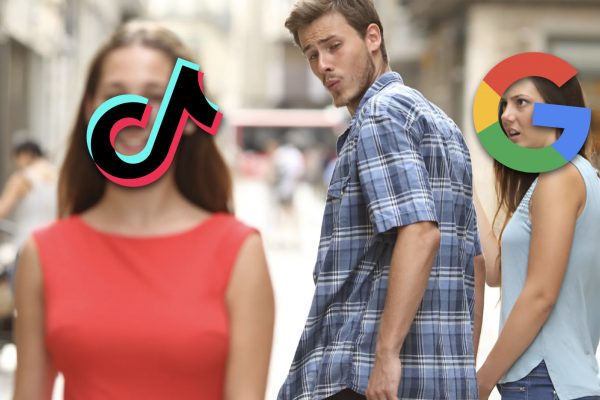Is TikTok replacing Google? BIG if true…
One industry story that has been building in recent weeks is the growing popularity of TikTok amongst younger audiences, not only for entertainment, but also news and information.
Back in July, Google SVP Prabhakar Raghavan – who runs the company’s Search, Assistant, Geo, Ads, Commerce and Payment product divisions, spoke at the 2022 Fortune Brainstorm Tech Conference.
Luckily, TechCrunch were on-hand to report on the event, in which the exec told the audience that: “In our studies, something like almost 40% of young people, when they’re looking for a place for lunch, they don’t go to Google Maps or Search. They go to TikTok or Instagram.”
This, according to New York Times Reporter, Kelly Huang, is part of a wider generational shift in search behaviour, who writing in the publication more recently said:
“TikTok’s rise as a discovery tool is part of a broader transformation in digital search. While Google remains the world’s dominant search engine, people are turning to Amazon to search for products, Instagram to stay updated on trends and Snapchat’s Snap Maps to find local businesses. As the digital world continues growing, the universe of ways to find information in it is expanding.”

A positive trend in some respects, because in a digital ecosystem that many feel has been too long monopolised by Google, this kind of diversification represents a much more dynamic – and also accountable – industry.
However, this shift does not come without its concerns, and was actually earlier this week called ‘a worrying trend’ by the New Statesman.
The issue of course, as it longsince has been, is fake news. While the social media sphere has created more egalitarian dissemination of information around the world, it clearly remains susceptible to inaccuracies – both of the intentional and non-intentional variety.
A recent NewsGuard investigation found that almost 1 in 5 searches on prominent news topics on TikTok result in misinformation, including for topics like Covid vaccines, the war in Ukraine, and school shootings. ‘TikTok’s users are consistently fed false and misleading claims,’ the study concludes.
In the afore-mentioned Kelly Huang NYT article, Information and Library Science Professor at the University of North Carolina at Chapel Hill, Francesca Tripodi, explains: “You aren’t really clicking to anything that would lead you out of the app,” she said. “That makes it even more challenging to double-check the information you’re getting is correct.”

And it’s not necessarily just the walled garden effect that presents an issue. When it comes to platforms like Facebook and Twitter, but particularly with a medium like TikTok that is so video and often conversationally-based, how do you stop the spread of fake news?
And where do you draw the line? Do the fact checking police start going around every café on the Champs-Élysées and correcting every misguided view on the Mbappe/Neymar/Messi debate?
It’s an interesting trend, which brings both positive and negative connotations for the wider social ecosystem, and of course ultimately reinforces the need for a free and fair press that is able to verify universal truths.









